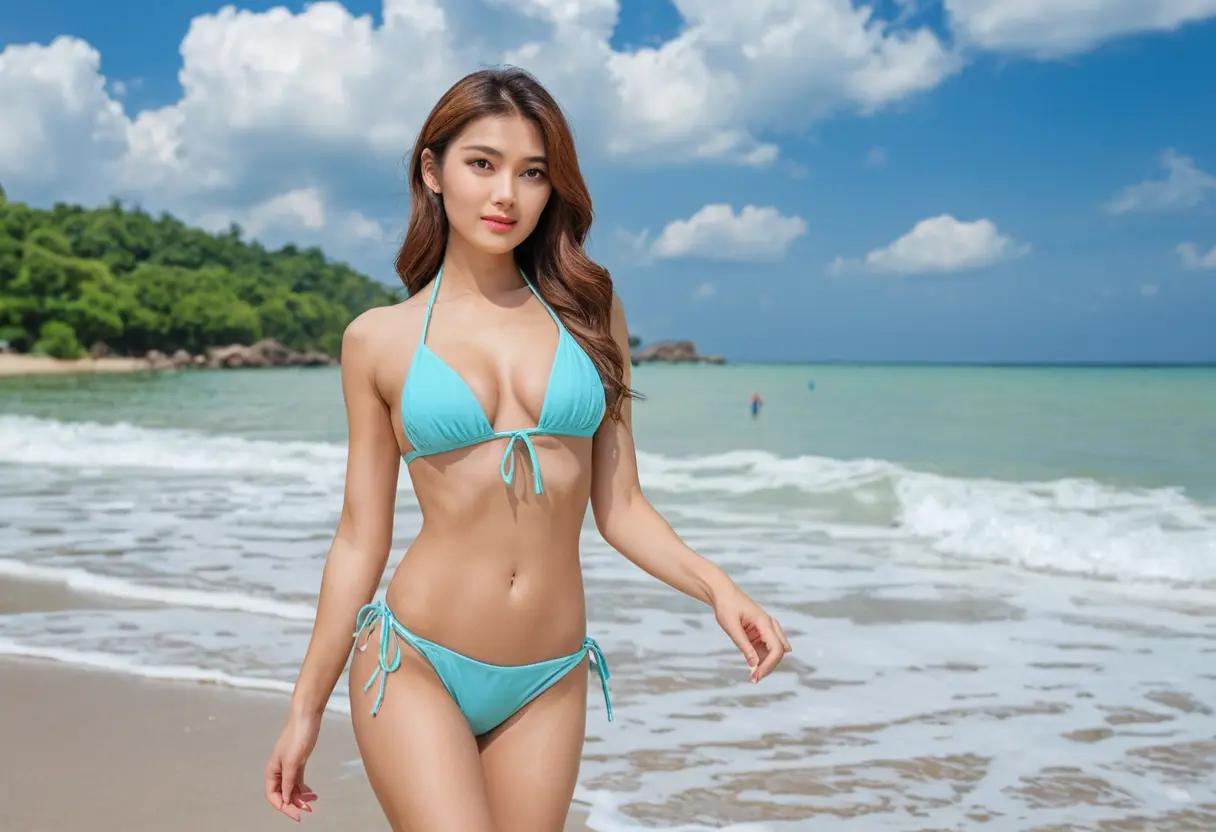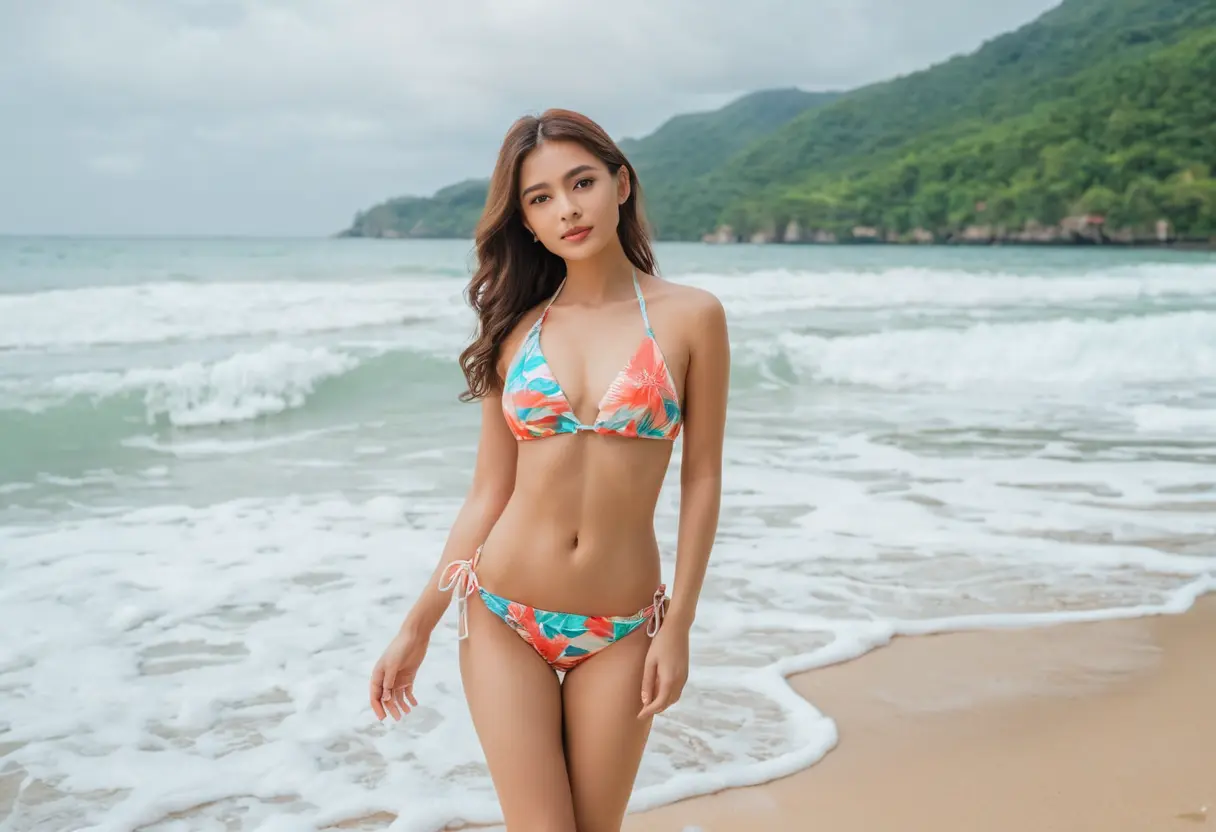The fashion industry has always been at the forefront of adopting new technologies to enhance creativity, efficiency, and consumer engagement. One of the most revolutionary advancements in recent years is the integration of artificial intelligence (AI) into video technology. AI-driven tools are reshaping how fashion brands design, market, and sell their products. From virtual try-ons to automated video editing, AI video technology is not just enhancing the visual appeal of fashion content but also optimizing business processes. In this article, we explore how AI video technology is transforming the fashion industry in various ways.
One of the primary areas where AI video technology is making a significant impact is in fashion marketing and advertising. Traditionally, fashion advertisements required expensive production teams, models, and locations. With AI-driven video technology, fashion brands can create highly personalized and interactive content that resonates with their target audiences.

AI can analyze consumer data to predict trends and create videos that align with customer preferences. For instance, AI can be used to generate videos tailored to individual customers based on their browsing history, past purchases, and demographic information. This level of personalization allows brands to increase engagement and drive conversions more effectively than traditional mass marketing campaigns.

Moreover, AI-powered video editing tools can streamline the production process, enabling brands to create professional-quality ads at a fraction of the cost. These tools can automate tasks like scene transitions, color correction, and even music selection, which traditionally required manual intervention from skilled editors.

Virtual fashion shows have gained tremendous popularity, especially in the wake of the COVID-19 pandemic, which limited physical gatherings. AI video technology has made it possible to conduct these shows in immersive, virtual environments. Designers and brands can showcase their collections without the constraints of physical locations, expensive travel, and logistics.
AI can create virtual avatars of models who can showcase clothing in digital environments, often replicating real-world runway presentations. These AI-powered avatars can also be programmed to walk the runway with specific motions, facial expressions, and even interactions with the audience, creating a more engaging and immersive experience for viewers.
Additionally, AI can be used to generate hyper-realistic 3D visualizations of fashion pieces, allowing consumers to see how different clothing items look from every angle without the need to physically try them on. This innovation is proving to be an excellent tool for fashion designers and brands aiming to enhance their online presence and improve customer experiences.
One of the most game-changing applications of AI in the fashion industry is the virtual try-on technology. With the help of AI and augmented reality (AR), customers can now "try on" clothes virtually before making a purchase. This is achieved by using AI-powered algorithms to map a customer's body measurements and superimpose digital clothing onto their real-time video feed.
Virtual try-ons provide a seamless online shopping experience and significantly reduce the need for returns, as customers can make more informed purchasing decisions. Brands like Gucci, Zara, and ASOS have already adopted this technology, offering customers the ability to try on clothes through their smartphones or computers. The technology is especially useful for accessories like sunglasses, watches, and shoes, but is increasingly being used for full outfits as well.
AI-driven virtual fitting rooms can also suggest personalized styling recommendations based on the user’s preferences, body type, and previous purchases. This further improves the shopping experience and drives customer loyalty, as consumers feel that the AI understands their personal style.
AI video technology is also transforming the way fashion designs are created. Designers can use AI to visualize their creations in virtual environments before producing them in real life. This allows for rapid prototyping, reducing the need for physical samples and minimizing waste. By simulating how fabrics behave under different lighting conditions or how a design fits various body types, designers can make informed decisions before creating a physical product.
AI-powered video software can also generate design iterations by analyzing data from previous collections and current fashion trends. This assists designers in creating new concepts that are more likely to resonate with their audience, thus speeding up the creative process and improving market relevance.
Additionally, AI is playing a pivotal role in production efficiency. AI tools can automate repetitive tasks in video production, such as stitching together raw footage or adding captions, enabling designers and manufacturers to save valuable time. The reduced time to market means that fashion brands can quickly respond to fast-changing trends and consumer demands.
Engagement is crucial in the fashion industry, and AI video technology helps brands connect with their customers on a deeper level. AI-driven videos can be used in various ways, from personalized advertisements to real-time styling tutorials and fashion advice. Through AI’s ability to process customer data and predict preferences, fashion brands can create video content that speaks directly to their audience's tastes.
Furthermore, AI chatbots and virtual assistants can interact with consumers through video, answering questions, offering styling tips, and providing product recommendations. These interactive experiences are designed to mimic real-life shopping interactions, creating a more engaging and personalized journey for online shoppers.
AI video content can also be used to bring a brand’s story to life. For example, fashion brands can use AI to create interactive video campaigns that allow customers to explore different aspects of the brand's identity, such as sustainability practices, design processes, or collaborations with influencers.
AI video technology is revolutionizing the fashion industry by providing new ways to engage consumers, streamline design processes, and create personalized shopping experiences. From virtual try-ons and AI-driven fashion shows to design optimization and personalized marketing, AI is enabling fashion brands to be more innovative, efficient, and customer-centric.
As AI continues to evolve, it is likely that its impact on the fashion industry will grow even further, creating exciting possibilities for both brands and consumers. Fashion brands that embrace AI video technology are well-positioned to stay ahead of the competition and cater to the increasingly tech-savvy and personalized demands of modern shoppers.
2024-11-05 20:04
2024-11-05 19:59
2024-11-05 18:58
2024-11-05 18:33
2024-11-05 18:10
2024-11-05 17:58